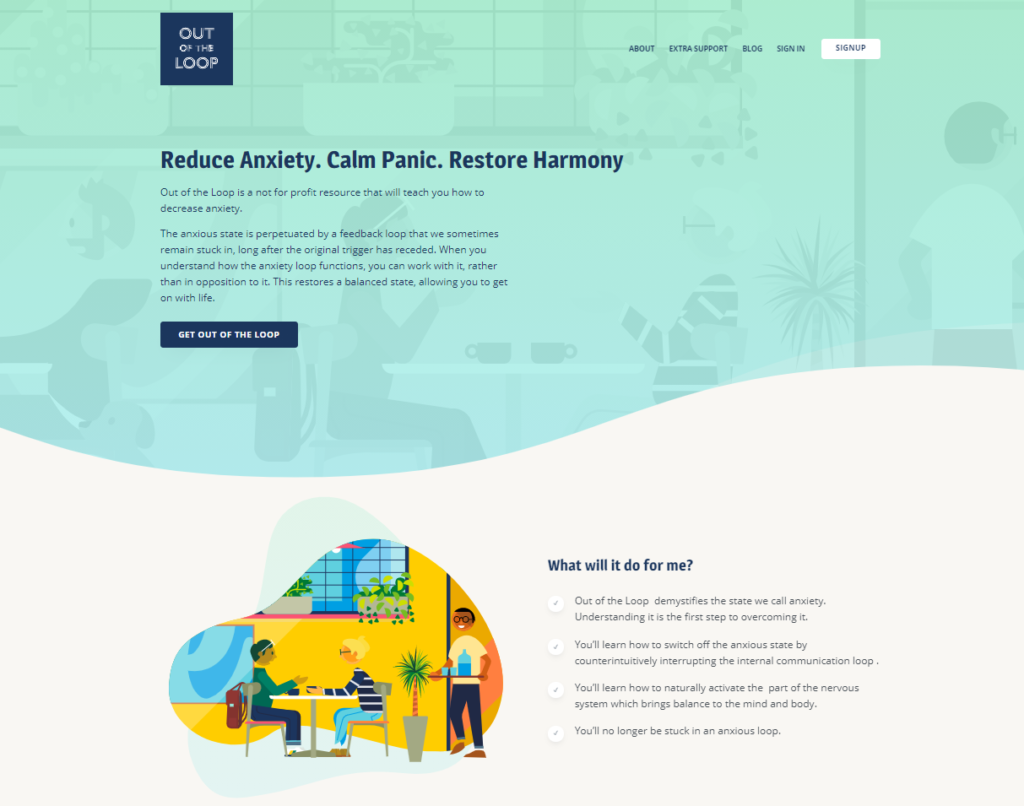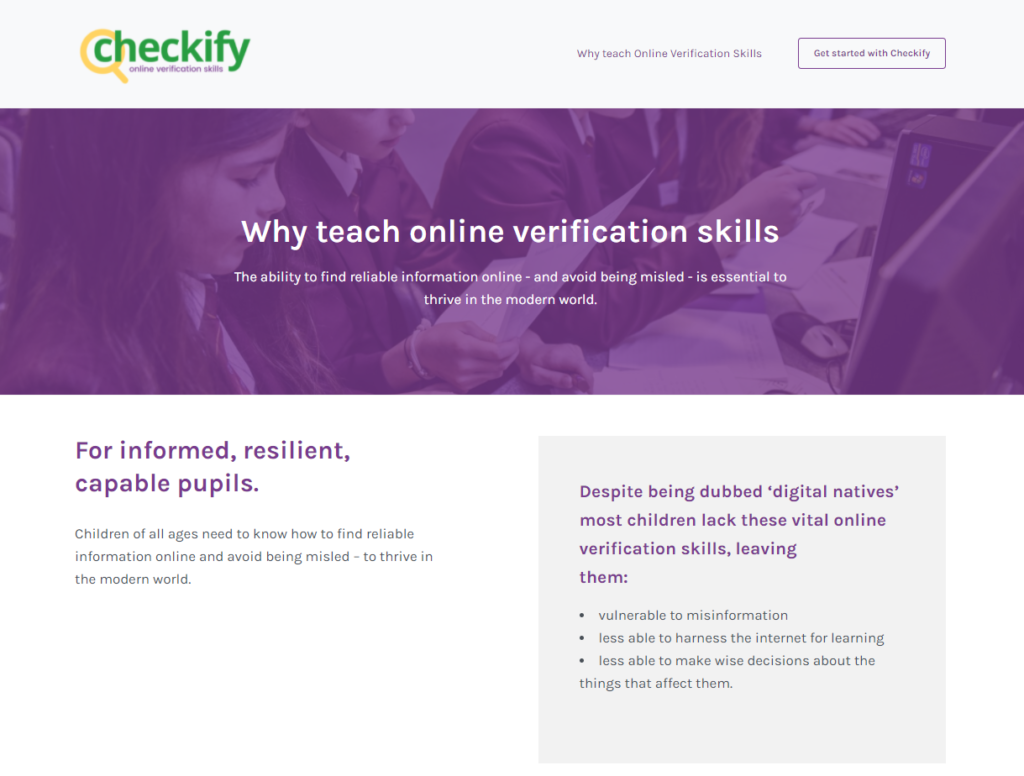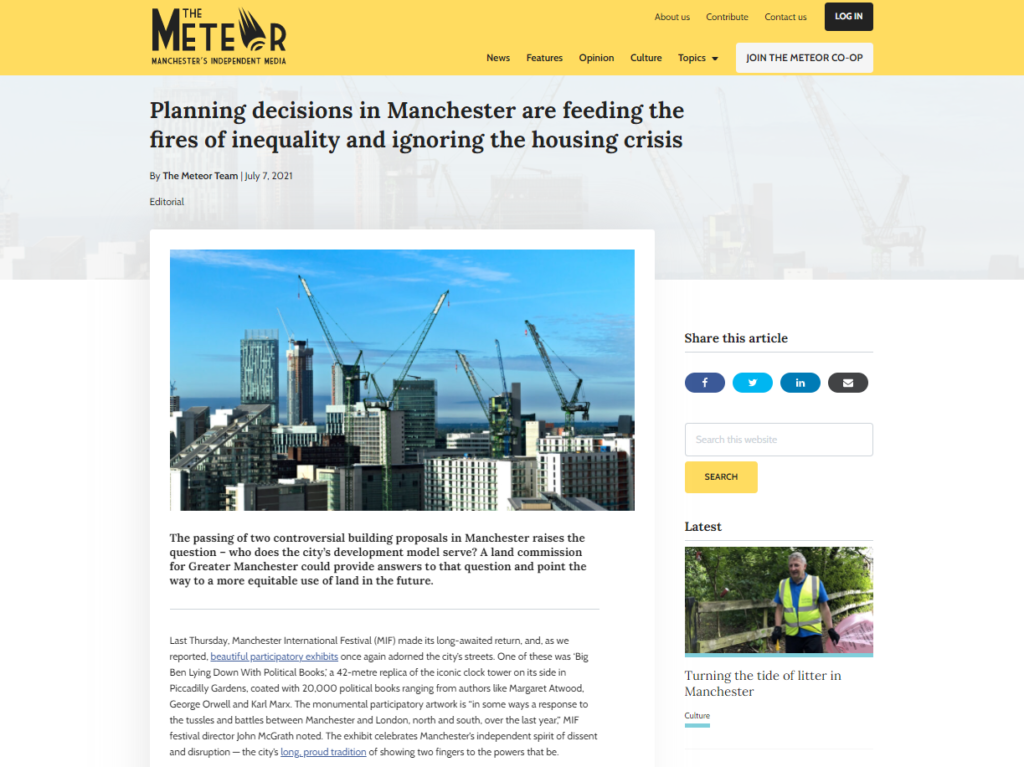We’ve worked with some incredible clients, helping them to; deliver essential services to survivors of gender-based violence, support people at risk of online sexual exploitation, and rehome rescue dogs and puppies. We’ve tackled environmental challenges, like helping reduce the carbon footprint of asthma inhalers, and working with Dsposal to improve sustainability in the waste industry.
We’ve trained, supported and played a role in the development of hundreds of charities. Yeah, we’ve done a lot in two years.
Here are some examples of the work we’ve done…
Our research work made a difference…
We worked with the London Office of Technology and Innovation and Camden Council to help synthesise research into resident attitudes towards the use of citizen data within the council.
We partnered with Think Social Tech and Reach Volunteering to publish a report into the use of skilled volunteers within the charity sector.
Later this year we’ll be excited to share an Innovate UK funded report we’re publishing, alongside the ace waste-tech startup Dsposal. This work involved extensive research into the efficacy of design solutions to reduce the environmental impact of inhalers.
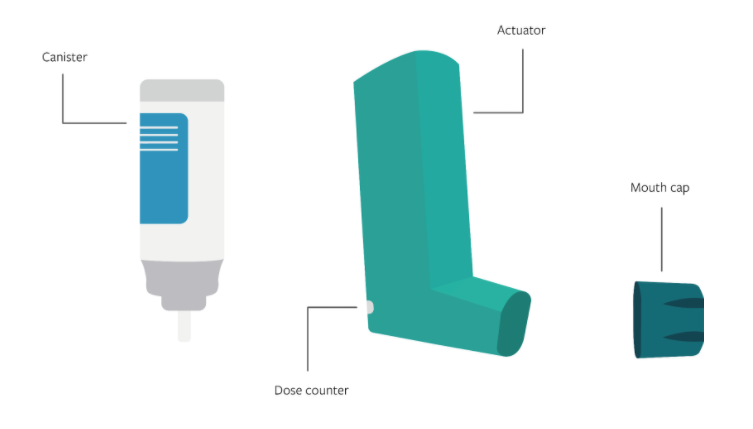
We worked with CAST and Catalyst to better understand how local networks can support charities on their digital journey. Want to know more about it? You can read a write up on the Catalyst website or even view the full Google Slides presentation.
One of our first projects involved working with social good accelerator Zinc’s start-up Tandem. We undertook some lean research, including a diary study and ethnographic research, to help them build a product to tackle transport poverty.
Spotlight Project: Equality Now
A report to understand technologies role in sexual exploitation

Equality Now believes in creating a just world where women and girls have the same rights as men and boys, and they know that social change often begins with legal change, so they use the power of the law to create enduring equality for women and girls everywhere.
Sex trafficking is the illegal trafficking of humans for sexual exploitation and is one of the areas that Equality Now works in. It is the fastest growing criminal enterprise in the world, worth nearly $100 billion each year, and 96% of its victims are women and girls.
Although the scale is difficult to quantify, the UK National Crime Agency says that the threat from cyber-criminals, human-trafficking gangs, and sexual predators is “growing in scale and complexity”, and threats include globalization, the rapid use, and expansion of technology, and the development of encryption.
However, not enough is known about exactly how technology fuels trafficking and sexual exploitation. The current legal and technological measures at the national and international level have not kept pace, resulting in inadequate safeguards to protect adolescent girls.
Working with Reply was, as always, a dream. The combination of comprehensive knowledge and understanding of the tech sector, alongside a methodical yet agile approach to research made the project run like clockwork. I’d highly recommend them.
Katherine Payne, Digital Campaign Officer, Equality Now
Equality Now wants to understand this in order to make change as a part of their Be Net Positive campaign and we are proud to have worked with them to create a report that will be used to influence decision makers, released later in 2021. We conducted a preliminary literature review to explore existing research around this issue. We specifically looked at technology’s role in sexual exploitation and human trafficking, understanding the survivor experience of routes into online sex trafficking and sexual exploitation, and the mechanisms for entrapment and exploitation over time.
We co-designed, co-researched and we tested…
We worked with the lovely people at The Good Things Foundation, as one of our first ever projects over in Sheffield. We collaborated with them to better understand how to embed digital literacy training into ESOL learning sessions. We undertook field studies, observing ESOL tutors at work and co-designed support with them.
We worked with The Federation and the Responsible Tech Collective led by Noisy Cricket, to co-design a people-led SmartCity process, ensuring that Greater Manchester’s SmartCity strategy is one that is led by the people who live, work and visit the region. We worked with a large group of stakeholders across the charity and community sector, local government and the tech sector to co-design a process that works for all parties, and that centres people are at the heart of any solution.
Spotlight Project: CHAYN
Co-designing an insights-led platform to support survivors of sexual assault
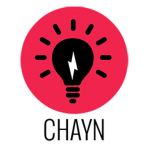
1 in 3 women worldwide experience some form of gender-based violence. It is estimated that of all women killed in 2012, almost half were killed by intimate partners or family members. For survivors of abuse, it can be extremely difficult to know where to turn. Chayn is working to fix that with digital services that support survivors of gender-based violence such as YANA and Bloom
Chayn is an award-winning organisation, run by 400 volunteers from 15 countries, that leverages technology to empower women against violence and oppression so they can live happier and healthier lives.
We’ve been working with Chayn on an ongoing basis as UX and user research consultants. We’ve helped create a research library so that their insights can be reused and shared, and we’ve supported their research team to develop a trauma informed process.


Another completely illegible image of the various maps that we created alongside Chayn
We’ve provided UX expertise, service design, analysis and synthesis, and are working with them to help understand their audience needs and impact measures as the projects evolve. Co-design and collaboration with Chayn’s international team has has been essential to the success of this project, and we’ve run regular workshops with them and their service users.
It’s been a pleasure working with Rebecca, who is a top class service designer. She’s reflective and insightful, and unlike many other user researchers, fits research methods and UX tools to the challenge rather than the other way around. She’s flexible and goes the extra mile to make sure not just her part of the project is a success but that the whole product and service evolves to be its best possible version. She’s easy and a joy to work with, both online and in-person. Our team really values our time with her and will continue working with her as well as recommending her to others.
Hera Hussain Founder, CHAYN
We did a whole heap of training and teaching…
We worked with Media Trust to design and deliver multiple training sessions for 100’s of charities across the country on Digital Leadership, Digital Campaigning and Digital Strategy. The course received a 100% “excellent or very good” feedback score.
We partnered with the wonderful Nissa Ramsey from Think Social Tech to design and deliver an intensive 4-week discovery learning programme which took 10 charities through the discovery process, resulting in a minimum viable product idea. This was part of the Catalyst Discovery programme which saw over 100 charities and 10 suppliers going through different varieties of this programme.
AND this piece of work led on to us also delivering Catalyst’s follow-up Definition Programme, a 10 week digital product course for 10 charities. We mentored, coached, workshopped and facilitated peer support all of the way through those intensive 10 weeks alongside the super talented Kat Quartermass from Neon Tribe.
Before Covid-19 reared its ugly head and the UK went into lockdown, we had made some very exciting plans for an in-person week of intense Tech for Good design sprint action with Manchester Metropolitan University as a part of their summer Rise programme.
Unfortunately lockdown hit and we had to quickly pivot our course to an online learning platform; this learning platform became a key part of the university’s strategy to engage with students during lockdown. We supported them to create dozens of courses on design, digital, data and content creation.
Spotlight Project: UCI Galway
Tech for Good Summer Course

We created a 4-day intensive remote Tech for Good Summer course for UCI Galway masters students. The students worked in teams throughout the week to research, design and prototype a tech for good product.
Day 1: We spent time exploring tech for good and tech ethics using practical tools and workshops. The students created podcasts talking about what they’d explored that day and reflecting upon their key learnings.
Day 2: Each team got a chance to talk to people who work in the charity space tackling issues with technology. They focused on power and privilege and then finished the day by choosing a social issue that they wanted to explore with tools such as theory of change, systems change, and behavioural science. They presented their work back to the whole team and carried out peer reviews and crits
Day 3: The teams ideated around their issue area and identified assumptions they might want to test. Yet again, they presented their work back to the whole team and carried out peer reviews and crits.
Day 4: On the final day, they learnt about storyboarding and prototyping. On this action packed day they began to design their prototype and final project pitch.
They used a notion to curate and upload all of their work through the week, and it was great to see the students put so much thought and effort into their final prototypes. It was inspiring to see the students grapple with the challenges of responsible tech, tech for good and tech ethics, and to see them produce such high quality work with such tight time constraints.
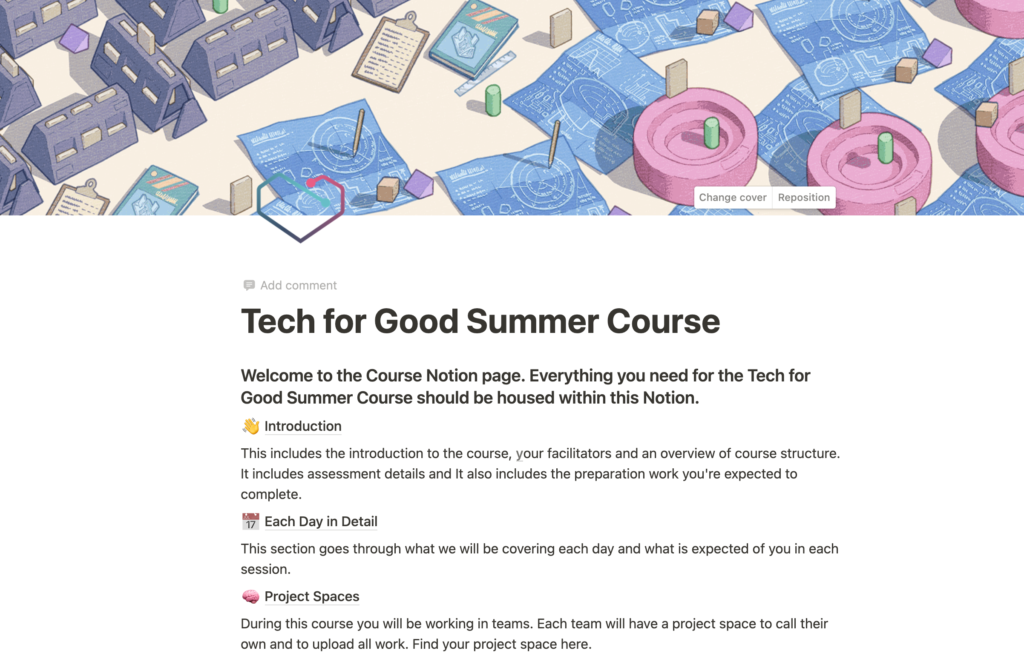
We made some websites and some prototypes…
We supported Refugee Women Connect to create a working and adaptable prototype using WordPress for their advocacy group. We helped Moving On create an online resource for young people at risk of homelessness to replace an unengaging PDF and empower their hardworking staff to support more people. We worked with the Centre for Fun and Families to ideate, design, prototype and test a resource to support young people with any worries they might have.
We were commissioned by Digital Life Skills Co to design a prototype for an online hub to support teachers to provide Digital Information Literacy education to their students.
We also were very lucky to work with Ben the Illustrator, (of whom we’re big admirers) on a project for psychologist Gill Batty called Out of The Loop. This is an online resource to support individuals who live with anxiety.
We worked with local democratic media cooperative The Meteor to redesign their website and member engagement area.
We redesigned the Collegium Telemedicus brand, alongside their outward facing marketing site so that they can help more doctors in far flung and war-torn regions get the support they need. We also undertook a UX audit of their product to help ensure that they can scale and grow their product offering to deliver even more social impact. The new website and brand will be launching in late August 2021.
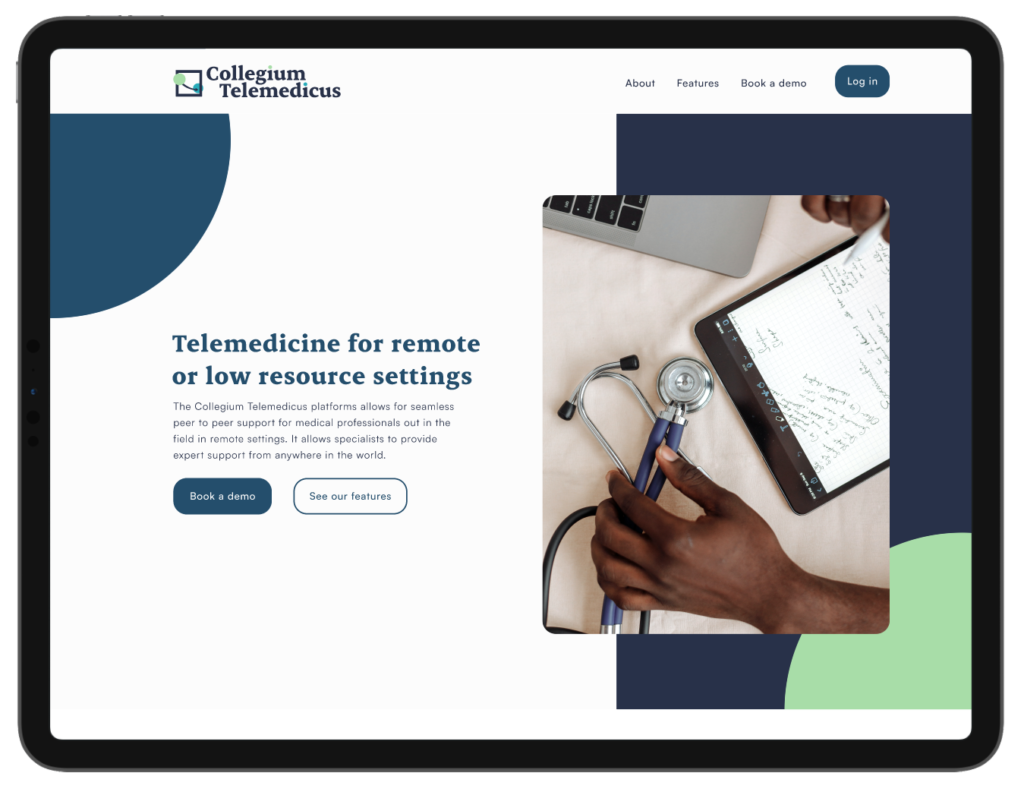
Spotlight Project: MASH
A website to support women who are street sex working in Greater Manchester
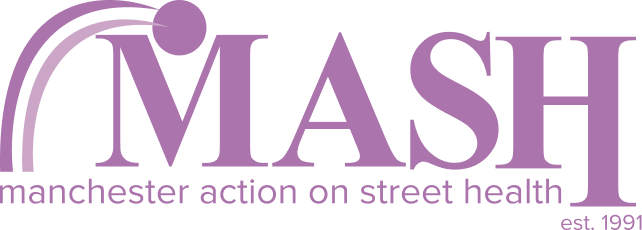
MASH is a charity that supports sex workers in Manchester through their centre, outreach work and free health nurse services. We worked together with MASH to support them through a series of workshops to explore their brand strategy and to redesign their new website for their anniversary. The new design needed to have a strong emphasis on expressing the friendly brand of MASH and designing a site for sex workers.
We undertook lean discovery with Mash, creating personas and user stories, helping ensure the redesign was responding to and meeting user needs.
The new website, featuring a warm and welcoming colour palette, with new brand imagery will launch in the next few weeks.
We’ve also implemented a new privacy-centred measurement plan to ensure that MASH can continue to improve the experience of their website in the future.
We designed some services and helped people understand their audience…
We worked with Dogs Trust on a Dog-Centred DesignTM project. We worked with their leadership team to coordinate their audience insight work across the entire organisation.
Our work enabled them to better understand their audience and to embed audience thinking within the organisation. It was vital that these insights and ways of working were usable and tangible across the many live projects within the organisation.
We undertook research to better understand how their audience feels about the rehoming process, enabling improvements to their operations and comms. This research involved talking to users going through the rehoming process and mapping their journeys, spotting opportunities for improvement and blockers. We’ve also been working on understanding the audience for their printed publication and their needs during the COVID-19 pandemic.
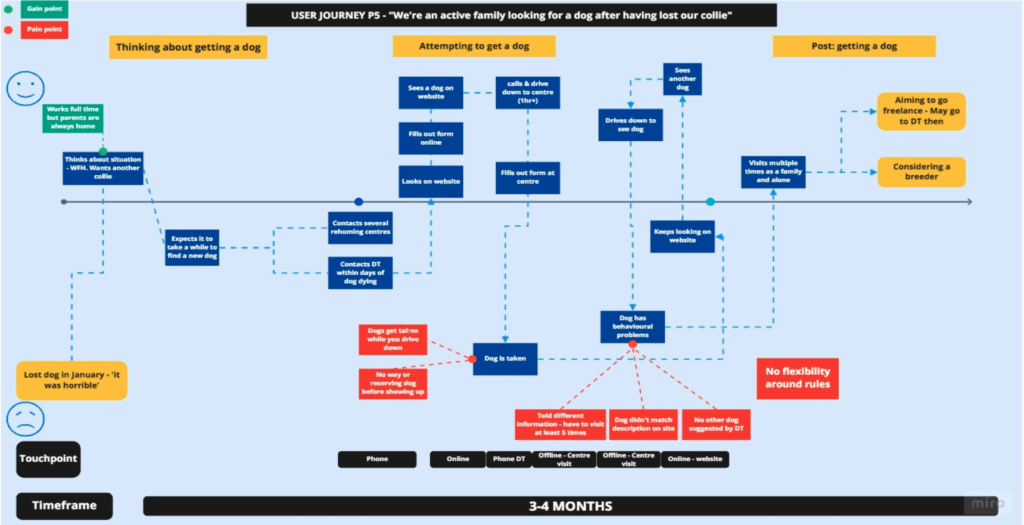
We’ve been working with the wonderful Zoe Amar and the charity Kids. Kids support disabled young people and their families. Our work has involved collaborating with Kids to develop a new Young Persons Digital offer.
We’ve been huge fans of 360 Giving since they were founded, and love their vision for grantmaking to be more open. We were so happy to get the opportunity to work with them to carry out audience research. We ran a mixed methods study, involving a survey of their audience, and then followed up with a number of 1:1 interviews. In addition to a thematic analysis, we also applied the COM-B behaviour change model to the research outputs. Ultimately we produced an in-depth report of our findings and a range of recommended next steps.
This project then led to additional work with 360Giving, picking up some of those recommended next steps. One of those projects is currently ongoing and is centred around designing and prototyping a more intuitive publishing journey for grantmakers.
We worked with Relate (the relationship people) on a few strands of work. Firstly, worked with their internal teams across the federation to begin to map out their service offerings and to identify pain points, blockers and opportunities and align this with the audience research they’d already commissioned.
We used a co-design process to draft, and then finalise design principles for the organisation moving forward. The key project output was an in depth report of our findings and recommended next steps as they continue to improve their service offerings. We also provided ongoing product management support to Relate as they begin to take stock of their use of digital across the federation.
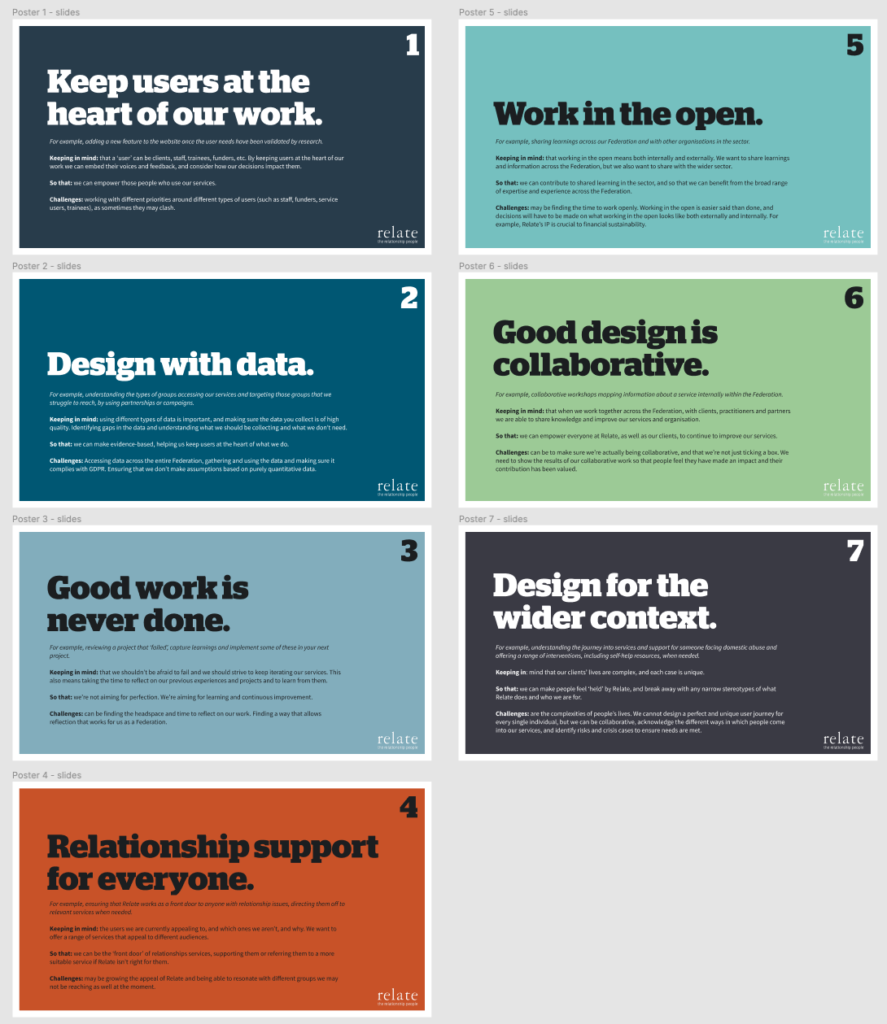
The new Relate design principles
Spotlight Project: GoodGym
Redesigning the referral process
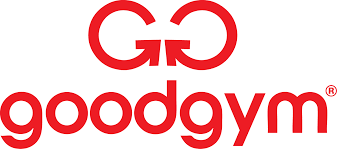
GoodGym has developed an innovative approach to both exercising and to volunteering, and we were delighted when they commissioned us to work with them.
The GoodGym model involves matching volunteers with charities, and those volunteers run to complete tasks for the charity. For example, this might involve running to meet elderly people to support them. The charity gets quality volunteers, and those volunteers are able to get some exercise.
During the pandemic, GoodGym experienced a massive increase in requests for volunteers as thousands of people across the UK needed help for tasks such as shopping, odd jobs and gardening.
GoodGym commissioned Reply to help improve and scale their service offerings, and to help increase the number of referrals as the UK begins to transition out of lockdown.
We worked with GoodGym and their partners, conducting research to understand what barriers currently exist and to explore areas of improvements.
With more volunteers returning to work and the needs of people requesting support shifting, we needed to ensure our design solutions worked at scale, and were able to adapt with changing social circumstances. We planned out a roadmap of ongoing and continuous live testing, spread over a period of time to enable us to capture changes and uncover additional needs over time.
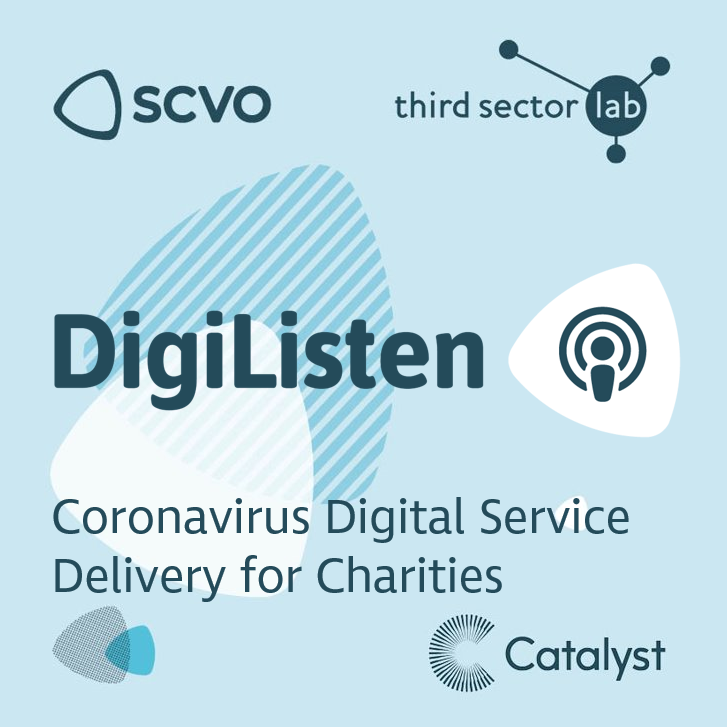
We made podcasts, designed taxonomies and more…
We worked with the excellent SCVO to create a weekly podcast during lockdown exploring how charities can quickly digitally transform their offline services. You can listen to the 18 Digi Listen podcasts on Anchor FM.
We worked with Glossop Creative Trust to help them develop comms to launch their new campaign Glossop Creates. The campaign supports and promotes local creatives and their work within the Glossopdale region.
We partnered with The Restart Project in conjunction with Noisy Cricket to help them measure their impact – yet another project focusing on tackling the climate crisis by reducing waste and encouraging reuse.
Spotlight Project: Catalyst charity taxonomy
A classification system for the charity sector

During the pandemic, Catalyst teamed up with several organisations to create the Alpha version of Service Recipes; descriptions of a service, user needs statements and instructions for how to reproduce this for other charities. The recipes describe different ways in which organisations implement “Service Patterns”.
We brought in Jessie Blaynee – an information architect and researcher – to support us on this project to create a taxonomy that can be used to categorise the recipes, but can also be used to form the foundation of future development of a service pattern library.
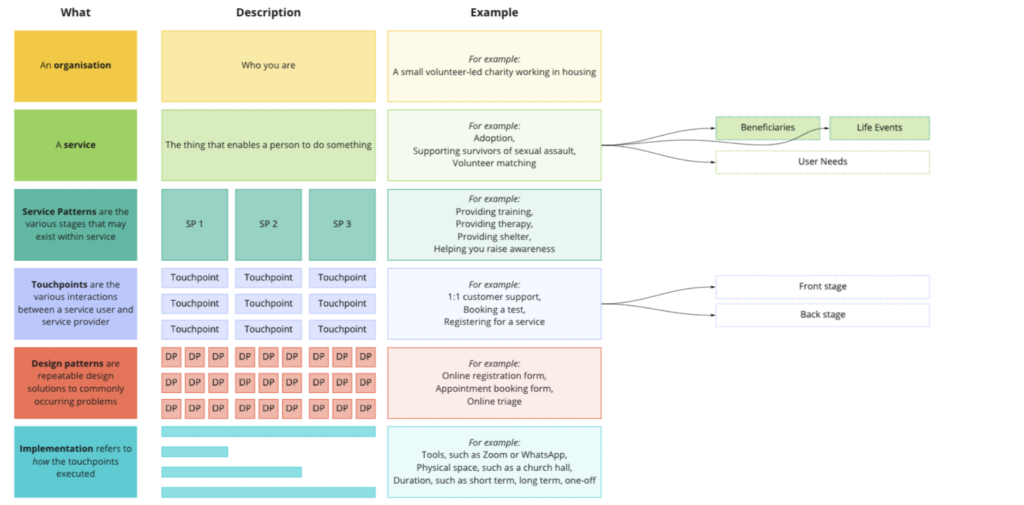
A breakdown of the overarching structure of the charity taxonomy
Reply was one of several organisations working on the wider “Recipes” project, and our work followed on from a previous project by Snook and FutureGov. The Recipes project had several streams of work; the taxonomy which we were tasked with, an editorial stream which involved collating and writing the recipes which was delivered by Charity Digital, as well a stream to encourage charities to work in the open that was delivered by Third Sector Lab and friends. The three streams of work attended combined weekly stand ups to share progress, blockers and opportunities.
Our work involved a whole host of interviews with charities, continuous testing of the redesigned taxonomy, and the creation of principles to ensure that the taxonomy is applied appropriately. You can find the current iteration in the Google Slides playback deck.
This fast paced test and learn approach helped ensure that we developed a taxonomy that was robust and practically helpful to the sector.
